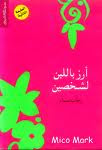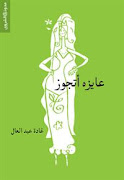

"e-Arabic and Cyberspace: the Marginalized Voices”
Sponsored by the British Academy and in association with the American University of Sharjah, UAE; Centre for the Advanced Study of the Arab World (CASAW); School of Modern Language and Cultures and the School of Government and International Affairs, Durham University, 10th and 11th June 2010
The recent proliferation of media platforms in the Arab World has provided an extraordinary number of perspectives from which to analyse civil society and its development. Hot on the heels of the ‘Al Jazeera revolution’, cyberspace is now viewed as having quickly overtaken satellite television in terms of its capacity to house and engender the discussion and expression of ideas and opinions that would not normally find their way to the public arena. These ‘marginalized’ groups with their diverse claims based on recognition are the focus of this symposium. Examples of these groups include, women, ethnic/religious minorities (e.g., Kurds, Berbers, Armenians, Shiites in Sunni-majority societies, Copts, Druze, Jews in Arab countries), LGBT, the socio-economically disadvantaged, to mention a few.
‘Arabic cyberspace’ is characterized by varying registers of the Arabic language and the incorporation of various dialects and borrowing from foreign languages. These various linguistic manifestations can be termed ‘e-Arabic’ and are a central theme of this workshop. This e-Arabic is a ‘new’ language used on the internet and mobile telephony which mixes, borrows and evolves, using numbers, Roman letters, Arabic script characters, emoticons and words from other languages, to engage not only with the globalised discourse, but also to highlight the specific ways in which the local frames the global. Blogging in particular, has become a popular way of reaching out to others with similar political, religious, cultural, social or economic interests and forming interest networks unrestricted by geographical boundaries. Recent findings published by the Berkman Centre for Internet and Society at Harvard University suggest that the largest dialectical linguistic groupings in the Arabic blogosphere were Egyptian, Saudi Arabian, Kuwaiti, Levantine/English, mixture), Syrian and Maghrebi/French mixture. Thus the usage of Arabic dialects is itself an important aspect of cyber discourses and provides a new area of inquiry for the assessment of the implications of diglossic manifestations in broader cultural forms.
Possible topic areas include, but are not restricted to, the following:
- e-Arabic in language and literature (new forms and mainstream literature).
- Gender and Arabic cyberspace
- Ethnic minority voices/publics (e.g. Kurds, Berbers)
- Religious minority voices /publics (e.g. Copts, Shiites, Druze, Jews)
- The socio-economically disadvantaged.
- The use of social networking technologies in civil society and political opposition movements.
- Relationship between groups and their registers of expression in Arabic
- The use of e-Arabic in the communicative process
- Potential dominance of particular dialects (Egyptian, Levantine etc.)
- The structural layout of ‘Arabic cyberspace’, i.e. who says what and where (geographically)
Papers concerned with oppositional and marginalized voices within the virtual realm and interdisciplinary approaches are particularly welcomed. Abstracts of 250 words should be emailed to Dr. Anissa Daoudi (Anissa.Daoudi@durham.ac.uk) Deadline for the submission of abstracts is: 30th April 2010.
Selected papers will be published in an international peer-reviewed journal as a special issue. Full papers to be submitted by 30th May 2010.
Participants will have a fee waiver for the registration. However, they are responsible for their accommodation and travel expenses.
Sponsored by the British Academy and in association with the American University of Sharjah, UAE; Centre for the Advanced Study of the Arab World (CASAW); School of Modern Language and Cultures and the School of Government and International Affairs, Durham University, 10th and 11th June 2010
The recent proliferation of media platforms in the Arab World has provided an extraordinary number of perspectives from which to analyse civil society and its development. Hot on the heels of the ‘Al Jazeera revolution’, cyberspace is now viewed as having quickly overtaken satellite television in terms of its capacity to house and engender the discussion and expression of ideas and opinions that would not normally find their way to the public arena. These ‘marginalized’ groups with their diverse claims based on recognition are the focus of this symposium. Examples of these groups include, women, ethnic/religious minorities (e.g., Kurds, Berbers, Armenians, Shiites in Sunni-majority societies, Copts, Druze, Jews in Arab countries), LGBT, the socio-economically disadvantaged, to mention a few.
‘Arabic cyberspace’ is characterized by varying registers of the Arabic language and the incorporation of various dialects and borrowing from foreign languages. These various linguistic manifestations can be termed ‘e-Arabic’ and are a central theme of this workshop. This e-Arabic is a ‘new’ language used on the internet and mobile telephony which mixes, borrows and evolves, using numbers, Roman letters, Arabic script characters, emoticons and words from other languages, to engage not only with the globalised discourse, but also to highlight the specific ways in which the local frames the global. Blogging in particular, has become a popular way of reaching out to others with similar political, religious, cultural, social or economic interests and forming interest networks unrestricted by geographical boundaries. Recent findings published by the Berkman Centre for Internet and Society at Harvard University suggest that the largest dialectical linguistic groupings in the Arabic blogosphere were Egyptian, Saudi Arabian, Kuwaiti, Levantine/English, mixture), Syrian and Maghrebi/French mixture. Thus the usage of Arabic dialects is itself an important aspect of cyber discourses and provides a new area of inquiry for the assessment of the implications of diglossic manifestations in broader cultural forms.
Possible topic areas include, but are not restricted to, the following:
- e-Arabic in language and literature (new forms and mainstream literature).
- Gender and Arabic cyberspace
- Ethnic minority voices/publics (e.g. Kurds, Berbers)
- Religious minority voices /publics (e.g. Copts, Shiites, Druze, Jews)
- The socio-economically disadvantaged.
- The use of social networking technologies in civil society and political opposition movements.
- Relationship between groups and their registers of expression in Arabic
- The use of e-Arabic in the communicative process
- Potential dominance of particular dialects (Egyptian, Levantine etc.)
- The structural layout of ‘Arabic cyberspace’, i.e. who says what and where (geographically)
Papers concerned with oppositional and marginalized voices within the virtual realm and interdisciplinary approaches are particularly welcomed. Abstracts of 250 words should be emailed to Dr. Anissa Daoudi (Anissa.Daoudi@durham.ac.uk) Deadline for the submission of abstracts is: 30th April 2010.
Selected papers will be published in an international peer-reviewed journal as a special issue. Full papers to be submitted by 30th May 2010.
Participants will have a fee waiver for the registration. However, they are responsible for their accommodation and travel expenses.



Anissa - thank you for an excellent symposium, which was highly stimulating and highlighted my need for some lessons in basic Arabic!
ReplyDeleteIf I may offer a few observations... ? Like others I was particularly taken with the keynote speaker's metaphor of the city sprawl to illustrate the chaos of the blogosphere, and the notion (in my own mind, at least) of the 'cyber-mob' clamouring at the 'cyber-gates' of power but being denied meaningful access. It strikes me that the granting of a (false) perception that the blogoshere gives access to power without giving any real chance of effectively influencing decision-making, is a particularly pernicious case of simultaneous empowerment and disempowerment - classic 'silencing' in fact (the focus of my research) whereby marginalised voices get to be 'heard' yet not heard, while the silencer remains hidden. This doesn't even have to be strategic... bloggers just need to be left to get on with venting their frustration, while ruling elites get on with wielding power.
However, what concerns me most is the potential for increasing both state and non-state surveillance of populations, which the symposium touched on but left undeveloped. Frankly I'm less concerned about overt censorship - blocking and other intercepts - than with the potential exploitation of social network users, many of them young and naive, in exposing themselves to 'the gaze' - cf.Foucault - not just that of ruling elites (and marketeers) but to that of each other... a kind of panoptican in reverse?... and the use that might be made of data thus gathered. I'm specifically concerned that the youthful demography of the Middle East, combined with an enthusiasm for (and distraction by) the technology, may be leaving the region even more exposed/vulnerable to manipulation and exploitation - crucially by the West, and all in the name of combating terror. Might these issues be explored further at the next symposium in March...?